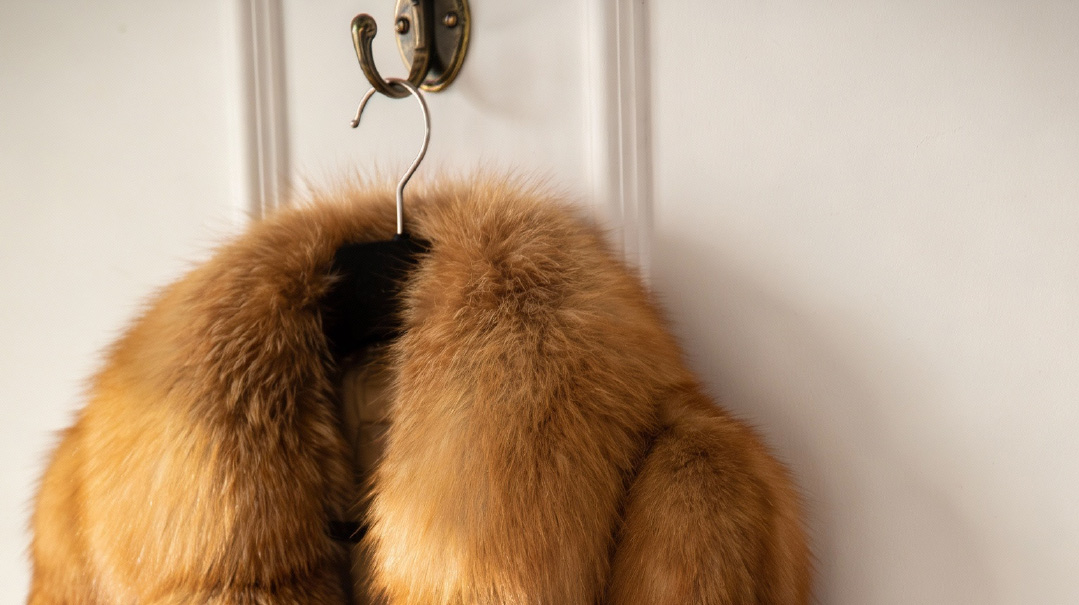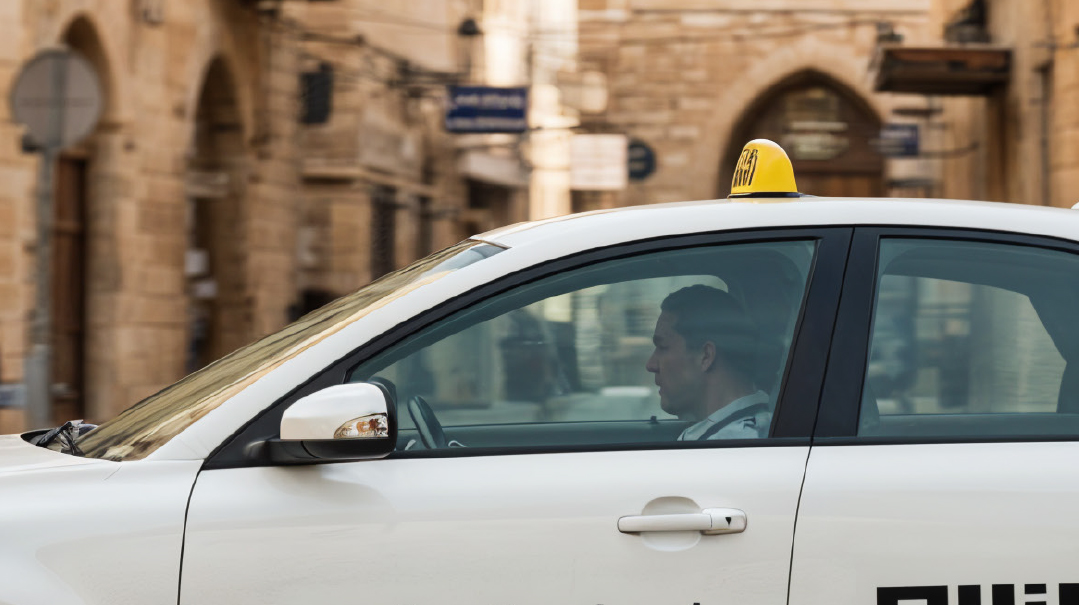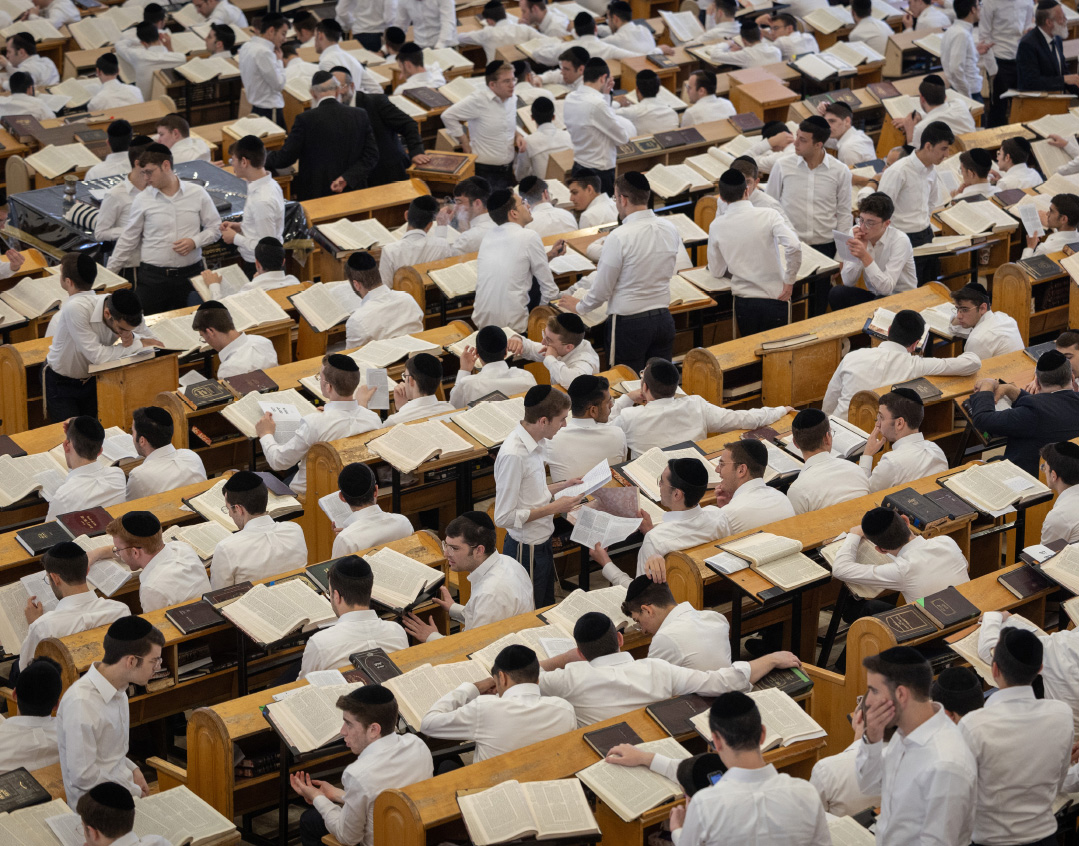Robbing the Shepherd
| May 20, 2025True tales from the corners of our world
Rav Rimmer’s story:
The Background
I heard this story from Rav Binyomin Rimmer during bein hazmanim in Arosa, Switzerland. Rav Rimmer — a son-in-law of Rav Yosef Shalom Elyashiv ztz”l, and extremely choshuv in his own right — addressed the oilem between Minchah and Maariv every night. As Rav Binyomin told this story about his father, Reb Mordechai Rimmer, the room was taken back in time to Poland during the war.
W
hen Mordechai Rimmer was taken to Auschwitz, he was a yeshivah bochur — and he was determined to remain one, even in this gehinnom. But for that, he had to learn — an improbability in Auschwitz at best.
One day, Mordechai heard of another Yid who had come to the camp with a Mishnayos. Here was his chance to continue learning! He approached the owner of the Mishnayos and asked if he could use it.
The man named his price — a portion of Mordechai’s daily bread allotment, the primary currency in this death camp. Mordechai didn’t argue. He simply put aside about a fifth of his daily bread, even though it had been barely enough to sustain him, but he had no other option.
When he had managed to put together enough bread to meet the man’s price, Mordechai brought it to him. The man ripped a page out of the Mishnayos and handed it to the bochur.
“Here you go,” he said. “If you want another page, come back to me with more bread.”
Again, Mordechai didn’t argue. He returned many times to hand over his bread and receive another page of Mishnayos.
IT
was Simchas Torah when Mordechai and some friends were taken to the gas chambers. By then, nobody was under any illusions as to what fate awaited them behind the doors. As they stood grimly, one of them suddenly called out, “Rabbosai, today is Simchas Torah. Let’s dance!”
Slowly but surely, the group of bochurim began to dance for the first time in years. Rusty at first, they soon picked up speed and were whirling around in front of the gas chambers.
The guards nearby were completely taken by surprise, and one of them demanded to know what they were doing.
“We are dancing because it’s a holiday today,” replied one bochur. “And because soon we are going to be together with G-d in Heaven!”
The guard set his jaw. “No, you are not going to be reunited with G-d today.”
He ordered the bochurim to return to their barracks. And Mordechai Rimmer survived another day.
AS
the war wound down and the Nazis began retreating, most Jews were taken out of Auschwitz on the death march. Mordechai Rimmer was desperately ill with typhus and couldn’t move, and the Nazis left him to die in the camp.
When an uneasy silence finally blanketed Auschwitz, Mordechai summoned his last vestiges of strength and crawled out of the barracks in search of bread. He grasped at the snow on the ground and shoved it into his mouth, relieving his dry lips. But it was not enough — he was starving. Mordechai collapsed on the snow. He could barely lift his head, but he forced himself to look around.
And then he saw a man: a man coming his way, holding four loaves of bread.
Mordechai knew he had no choice. Gathering some snow, he rolled it into a snowball and threw it at the man—who was so shocked that one of these corpses had suddenly come to life and attacked him with a snowball that he ran away, dropping one of his loaves on the ground.
Mordechai felt guilty, but he picked up the bread, made a brachah, and ate as much as he wanted for the first time in a very long time.
After the war, many survivors were gathered in DP camps where they waited for countries around the world to agree to accept them. Mordechai wanted to leave the blood-soaked soil of Europe behind, but he was not prepared to wait until he was granted an entrance visa, so he started walking to Eretz Yisrael. It took him half a year, passing through numerous countries and crossing border after border. Once he had to climb a tree to escape a large dog and ended up having to stay in the tree for three days. Eventually he reached Greece, where he was able to obtain false papers and passage on a boat headed for Eretz Yisrael.
When the boat docked, Mordechai found himself in a place called Atlit, where to his great joy, he discovered a beis medrash and even some seforim. Desperate to make up for lost time, he settled down on one of the wooden benches and began to learn.
One day someone walked in on him and saw him shteiging away. Surprised by this unusual sight, the man asked Mordechai where he was being sent to live. Mordechai handed him papers showing that he would soon depart to a kibbutz under the auspices of Hashomer Hatza’ir.
“Bochur,” said the man, shocked, “there is no way that a boy who learns like you can go to a kibbutz like that! You need to go to a place run by Poalei Agudas Yisrael.”
Walking through the Tel Aviv streets on the way to the Poalei Agudas Yisrael offices, he saw little children with long peyos, a sight he hadn’t seen in years. And then, Mordechai Rimmer did something that he hadn’t done since the beginning of the war — he cried.
Poalei Agudas Yisrael assigned Mordechai to Kibbutz Chofetz Chaim. There, he learned in the beis medrash and trained to be a watchmaker. One day he was sitting in the kibbutz beis medrash when someone walked into the room and saw him learning with fire. The man told Mordechai he should be learning in a yeshivah.
Mordechai hadn’t known that there were any yeshivos.
“Help me get in to a yeshivah and I will go,” he responded.
And so it was that Mordechai Rimmer found himself in the Chevron Yeshivah in Yerushalayim. Finally, he was home.
“Before my father passed away,” Rav Binyomin said, “he ended up sharing a few of his memories with me. On his final Simchas Torah, he told me about dancing in front of the gas chambers in Auschwitz. Later, I was sitting near his bed when he was very sick, and he told me he still had one regret.
“ ‘For the last 50 years, I can’t stop thinking about the bread that I stole from that man in Auschwitz,’ he said. ‘I know I needed it to save my life, but I still have such regret. My son, never do anything that you won’t be able to fix afterward.’
“When my father-in-law, Rav Elyashiv, came to be menachem avel after my father passed away,” Rav Binyomin continued, “I told him what my father had said about his last regret.
“He looked at me and said two words: ‘Kapchei l’roeh.’
“Then my shver showed me a gemara in Yoma about an Amora who was starving to death, and he pulled some bread away from a passing shepherd to save his life.
“ ‘It’s the same thing here,” Rav Elyashiv said. ‘Your father had typhus. He was going to die. Taking the bread was exactly what he was supposed to do.’ ”
With those two words, “kapchei l’roeh,” Rav Binyamin was consoled.
(Originally featured in Mishpacha, Issue 1062)
Oops! We could not locate your form.







